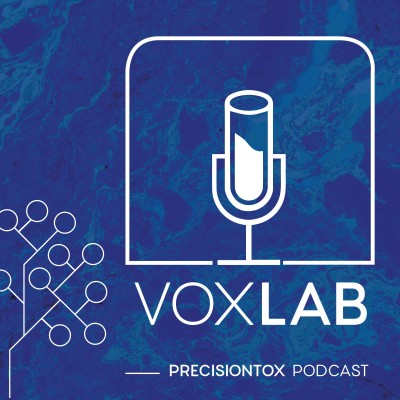In the VOXLAB podcast series, Jeanne Laperrouze takes you on a journey towards precision toxicology. Listen to the voices of scientists across the globe working to advance life sciences and provide faster and more accurate solutions to understand the mechanisms of action of toxicants on human health. Discover what the theory of evolution teaches us about fruit flies, round worms, water fleas, zebrafishes and frogs and how we can harvest this knowledge to better protect all animals, including humans, and the ecosystems from the adverse effects of chemicals thanks to the power of phylogenetics and toxicology.
The PrecisionTox Consortium gathers 15 research organisations from Europe and the US under the leadership of the University of Birmingham, united around the objective of tackling chemical pollution worldwide, the first cause of deaths in the world, without the need of mammalian animal testing.
The PrecisionTox project has received funding from the European Union's H2020 program (Grant Agreement n° 965406) to accelerate chemical risk assessment without the use of mammalian testing to better project human health and the environment. The content of this program only reflects the
authors ‘view, the EU cannot be held responsible for any use of the information contained therein.
To learn more, visit our project website and follow us on Twitter : @PrecisionTox
Hosted on Ausha. See ausha.co/privacy-policy for more information.
